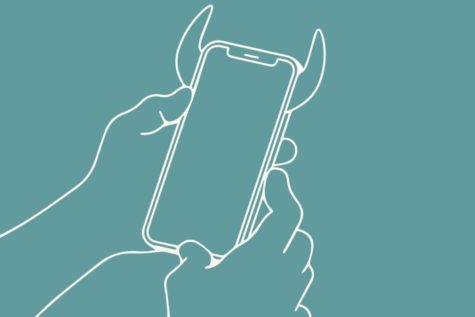OPINION | Yik Yak revitalizes cyberbullying at Tulane
October 13, 2021

“The Yak is Back” says the anonymous messaging board’s website in bright colors alongside a bouncing animal cartoon, right under links to “Mental Health Resources,” “Stay Safe Resources” and the “Community Guiderails,” which the creators of the Yik Yak have used as a weak justification and blatant acknowledgement of the app’s problematic nature.
After its initial release in 2013 and subsequent removal in 2017, Yik Yak relaunched this August and is currently making a large comeback on Tulane University’s campus. While the app may provide a sense of affinity, a source of humor and even a means of catharsis for Tulane students, it remains an environment for cyberbullying, sexual harassment and other derogatory behaviors, all of which students can hide behind the impunity of anonymity.
Concern regarding Yik Yak is no new phenomenon. In 2014, a female student at Middlebury College wrote a letter in her school newspaper addressing how Yik Yak prompted a relapse in her eating disorder after a post surfaced saying, “If I could bang a hippo for no finals, I would hunt down Jordan Seman.”
Threats of mass shootings on the app have prompted several schools to undergo lockdowns, including one Yak posted in November of 2015 at the University of Missouri saying, “I’m going to stand my ground tomorrow and shoot every black person I see.”
Threats of sexual violence on Yik Yak were impetus for a feminist organization at the University of Mary Washington to file a lawsuit against their school which they claimed failed to protect them from threats of rape and other physical violence. Some of these threats were speculated to be connected to the murder of 20-year old Grace Mann — a member of said group — in April 2015. Countless incidents such as these were presumably linked to the app’s decline from its $400 million valuation in 2014 to its $1 million sale to Square in 2017.
Yet now, Yik Yak has reemerged, declaredly new-and-improved, with “Community Guiderails.” The app alleges that posts which violate these rules will be taken down. However, Yik Yak at Tulane has proven that Yik Yak is not honoring their commitment, most notably through posts that violate the rule barring users from posting others’ full names.
Recently, Yik Yak posts at Tulane were used to draw attention to a malicious Change.org petition that described a female student as a representation of “the worst aspects of the Tulane community,” and demanded that she “sacrifice” herself by holding up the crane.
While the petition is outlandish and was likely intended as a joke, no Tulane student should have to wake up in the morning to an online petition that suggests they commit suicide, in addition to a slew of other demeaning posts mentioning them by their full name.
Other Yik Yaks within the Tulane community have been used to slut shame, describe students in a sexually explicit manner and attack others for supposed personal offenses — cheating, calling the cops on a party, etc.
The anonymous makeup of the app allows students to say what they want without accountability for their words, or conversely, bear witness to the consequences of their words on those whom they target.
While the majority of posts are not meant to humiliate others or put them down, the almost constant presence of ones that are — whether they target students, organizations or even marginalized groups — reflect the inability of the Tulane community to use this app in a way that is safe for everyone.
While the administration may not be able to take any substantial action against the use of the app itself, they should address its impact on our community and provide resources to those who have been personally affected by negative posts.






















Leave a Comment